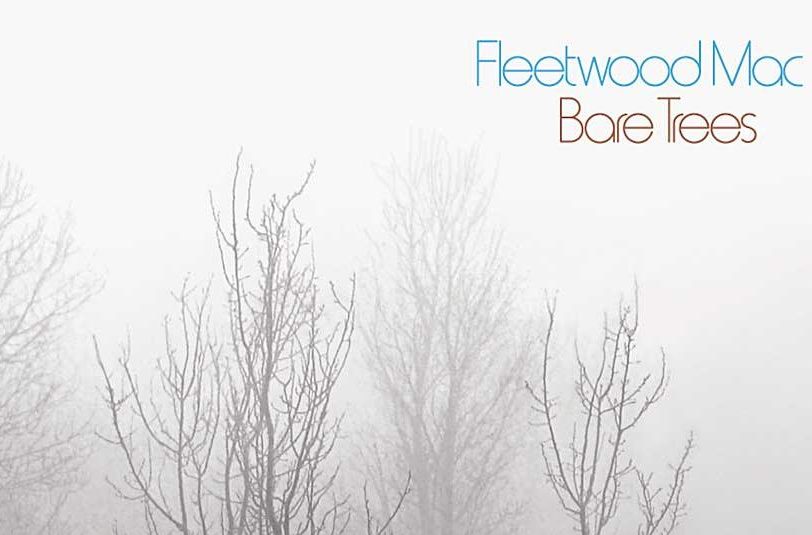It’s not surprising that a history as tumultuous as Fleetwood Mac’s should be peppered with “what if?” moments. One of the most intriguing is: what if Danny Kirwan had stayed with them after the release of 1972’s Bare Trees? The group’s sixth album saw the guitarist – just 21 years old at the time of its release – cementing his position as the central creative force behind Fleetwood Mac, writing five of the album’s nine songs (not counting the final, spoken-word track) and putting his musical stamp on the rest of the group’s contributions.
And yet Kirwan was fired during the August 1972 US tour the group undertook to promote the record. His increasingly difficult behaviour had come to a head when an argument with fellow guitarist Bob Welch about tunings led to violence and a dressing-room demolition. Still, Bare Trees is an underappreciated gem in the early Fleetwood Mac catalogue, emphasising what a talent Kirwan was as well as giving listeners notice of the emerging songwriting prowess of Welch and Christine McVie.
Listen to Bare Trees here.
A melodic foil
Trouble had been on the cards for some time. In 1968 an 18-year-old Kirwan had been brought in by Peter Green, acting as a melodic foil for the founder member while the group moved from playing pure blues to more experimental, envelope-pushing music. Success came quickly for the newcomer – his first session was for the evergreen No.1 hit Albatross, on which he provides a counterpoint to Green’s lead line, while his first album with the group, 1969’s Then Play On, saw him playing more of an active role. Taking his first steps into songwriting and accruing more lead guitar spots, Kirwan’s eclectic tastes broadened the group’s horizons.
However, the guitarist’s volatile temperament meant that, despite their musical chemistry, he began to clash with Green, as he told Guitar magazine in 1997: “We just didn’t get on too well basically… We played some good stuff together, we played well together, but we didn’t get on.” Green left Fleetwood Mac in May 1970, leaving Kirwan and guitarist Jeremy Spencer stepping in to fill his formidable shoes on Kiln House. But they looked to be on the verge of collapse until keyboard player Christine McVie joined them on tour, providing the musical glue that would hold them together.
Old animosities
In February 1971, Spencer failed to turn up for a gig at Los Angeles’ Whiskey A Go Go, leading to the discover of one of the strangest Fleetwood Mac facts of all. After a search that lasted several days, it transpired that he had joined The Children Of God, a religious cult based in California. The band soldiered on with one guitarist until it became apparent that they needed reinforcements, at which point manager Clifford Davis called upon Green to rejoin the group for the remainder of the tour. The shows were well-received but became focused on Green’s skills in improvising, which frustrated Kirwan and led to old animosities flaring up again.
Two months later, Green had left for good, Californian guitarist Bob Welch was on board, and Kirwan took a leading role on Future Games, released that September. It was a step up musically for Kirwan (particularly the balmy beauty of opening track Woman Of 1000 Years) and, selling well in the US, forced the group out on the road throughout most of 1971 and early 1972. Before long, however, the pressure of being the main musical focus took its toll and Kirwan began to clash with Welch.




